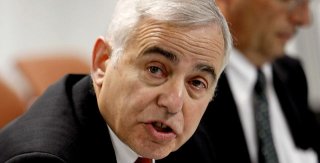UC Berkeley March for Education
March on Everywhere!
Article from Inside Higher Ed http://www.insidehighered.com/news/2010/03/05/california
BERKELEY, CALIF. — In an unprecedented day of national protest across all sectors of education, the epicenter proved to be this college town where the seeds of student activism were sown more than 40 years ago.
With the smell of burning sage and the occasional hint of weed in the air, an impassioned throng of students from the University of California’s Berkeley campus marched to Oakland (where the university system’s headquarters are located) in opposition of budget cuts and tuition hikes they say are crippling one of the nation’s premier public institutions.
While the five-mile trek to Oakland proved largely peaceful, police arrested as many as 200 protesters once they reached freeways and tried to block them.
The arrests mark the continuation of a what many describe as a troubling trend at the University of California, which has seen recent allegations of police brutality, racially motivated discord and an activist movement that at times appears intent on provoking law enforcement.
To hear protesters tell it, this wicked stew of issues has been simmering for some time. A cycle of budget cuts imposed by the state and tuition hikes approved in response by the university have set UC on a path toward
privatization, creating more barriers for minority and low-income students, critics say.
When Louis Reyes, a student activist, hopped on the flatbed of a white pickup parked at the intersection of Telegraph Ave. and Bancroft Way — within sight of a student bookstore — he argued that the noose found at the university’s San Diego campus was not a random act of intolerance, but rather a byproduct of larger issues of inequality within the system.
“The racism that has been seen throughout the UC … isn’t just individual racism, but this is indicative of the structural racism that the crisis of public education today represents for our community,” said Reyes, who works with a student group called Third World Assembly that advocates for minorities.
Administrators might take issue with the suggestion that the poorest students are being denied access, as they have publicly and intentionally tried to spare those of modest means from hikes.
Even so, the “privatization” tag now persists to such a level that dozens of individual demonstrators interviewed independently Thursday often sounded as if they were reading from the same script on the issue.
“We’re starting to privatize a public good,” said Waseem Salahi, a Berkeley student, echoing the comments of many.
Among hundreds of voices, however, it’s difficult to find more fervent critics of “privatization” than a small group of witty students who have suggested that’s exactly what they want. The “UC Movement for Efficient Privatization” (UCMeP — and don’t forget to lowercase the “e” in “Me”) was at its sardonic best Thursday, suggesting the university be privatized more quickly.
Yes, it’s a joke.
Lamenting a protest movement hell-bent on keeping the university public, a spokesman for the organization conceded among a sea of angry students that “Today is really a scary day for us.”
But Shane Boyle and his UCMeP cohorts did their best to keep the momentum behind their own movement. His partner in capitalism, Micki McCoy, dressed as a stewardess and pleaded through signage that the protesters “Help Buy [Mark] Yudof a Plane” — an obvious and pointed reference to the university system president’s controversial Q&A with the New York Times, wherein he justified being paid more than the U.S. president by saying “Will you throw in Air Force One and the White House?” The interview, published more than five months ago, has caused quite a stir.
Tom Blair, chair of the Foreign Languages Department at City College of San Francisco, said in an interview Wednesday that his friends in the UC system “would have just as soon bring out the guillotine“ the day after the story was published.
Emigrant Experience Mirrored Across State (and Beyond)
Thursday’s protest in Berkeley proved just the beginning of a “Day of Action,” which included a sizable throng aiming their attention directly at political leaders in Sacramento (as California college and university leaders might prefer) and culminated in a significant demonstration at the San Francisco Civic Center. Attended by what appeared to be more than 2,000 people at its peak — police did not provide estimates before publication — the protest was a mosaic of concerned citizens of every age, color and creed.
Among the demonstrators was Jose Cardeñas-Pisfil, who emigrated from Peru with a dream of a better life in the U.S, much like thousands of other students across California’s education system. While fluent in English, Cardeñas-Pisfil is fully aware that his pronunciation needs improvement.
It is for this reason that he works the graveyard shift as a security guard from 11 p.m. until 7 a.m. so that he can head to English as a Second Language classes at Cañada College at 8 a.m. The budget cuts, he says, have forced dramatic cutbacks on class offerings and left him without the education he feels he sorely needs in order to have anything resembling success in this country. He wants to be a nurse, but Cardeñas-Pisfil even has trouble saying why he wants that in a way most English speakers would understand.
With a bulky frame, and a cardboard sign that reads “EDUCATION Is A Right Not A PRIVALEDGE,” Cardeñas-Pisfil says the crisis dashes his dreams.
“What am I going to do? Work with just my arms?” he asks. “Not my brain?”
While California was clearly the epicenter of the March 4 protests, students and others elsewhere took to the streets and their campuses, too. Police officers in Milwaukee broke up a crowd with pepper spray and arrested 15 people when a protest at the University of Wisconsin’s campus there turned violent, the Journal-Sentinel reported. University officials said students had tried to storm the main administration building and that protesters physically attacked officers; student leaders said the officers had punched them.
In Olympia, Wash., students from Evergreen State College held a mock funeral with a casket that said “RIP Education” and got tossed out of the state Senate building when their repeated singing of a version of “Amazing Grace” was deemed too disruptive, the News-Tribune of Tacoma reported. Among the lyrics: “The bright young minds of our country, Now wake to meet their doom; So why should we apply to school, When close ahead lies gloom?”
At the University of Illinois’s main campus, professors and graduate students carried signs reading “Furlough Legislators.” And protesters in Alabama urged legislators to avoid budget cuts and save the state’s prepaid tuition program, which has been in serious danger.





